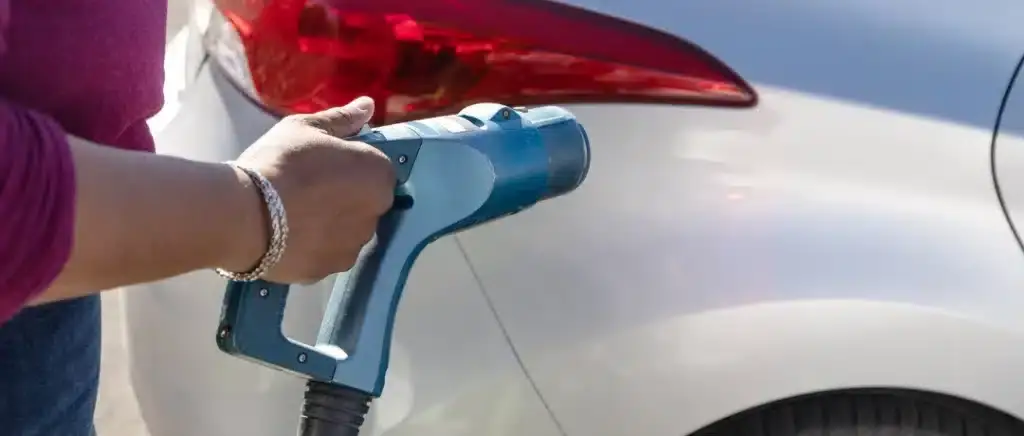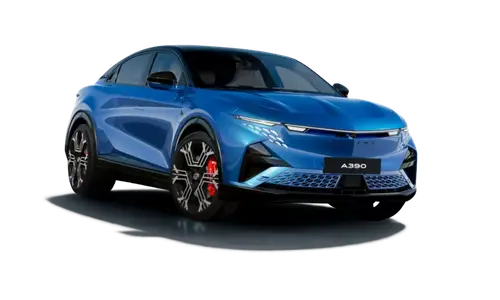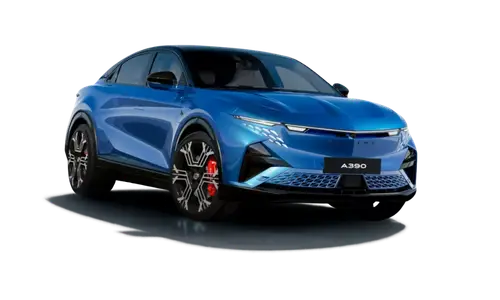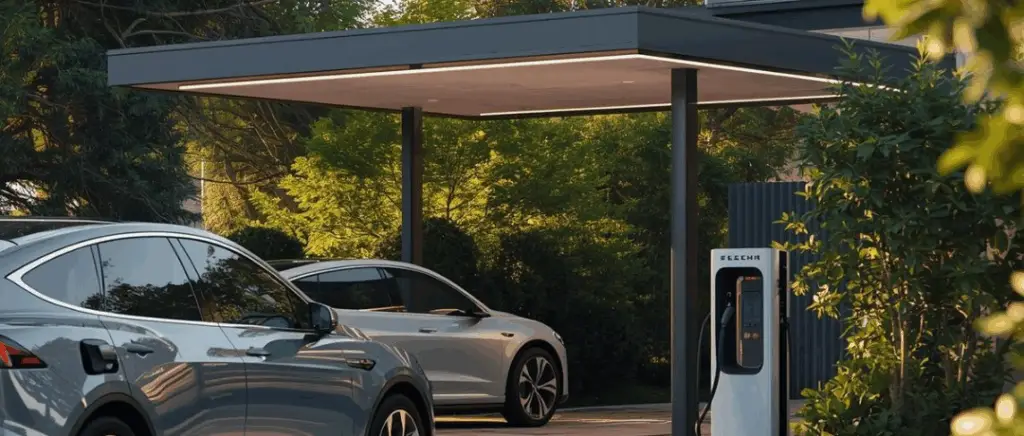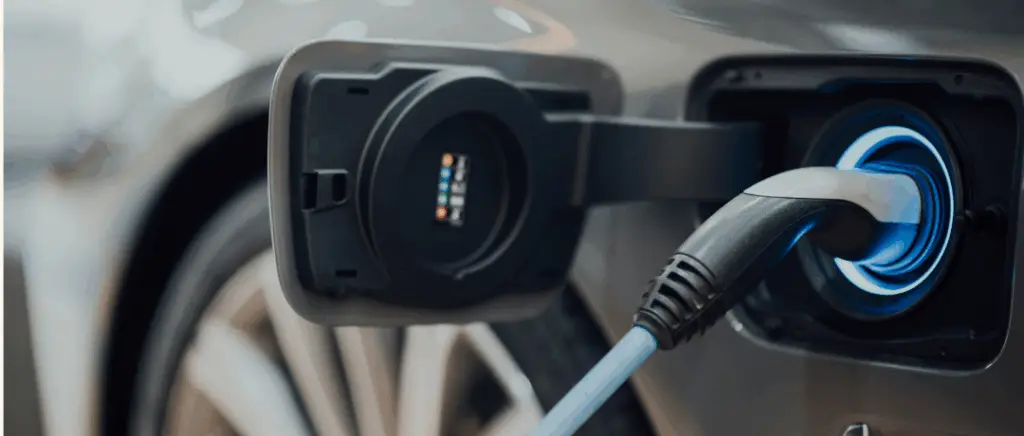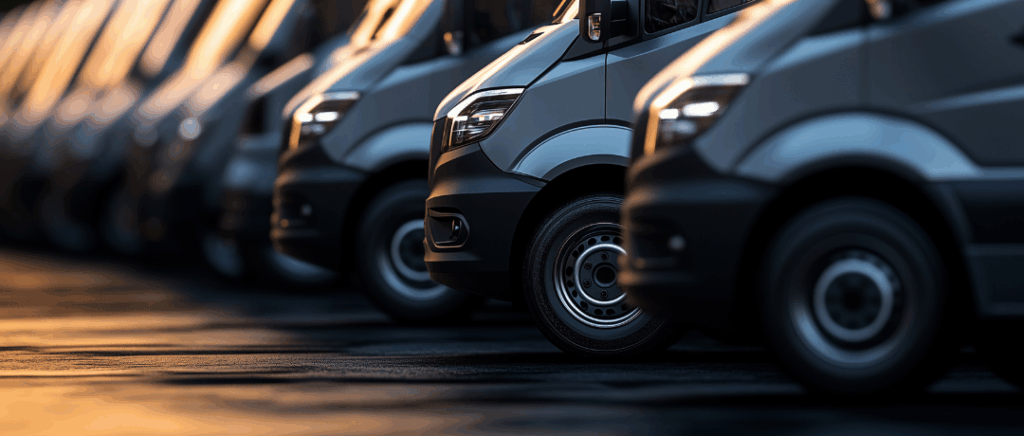Monday to Friday
9am - 12.30pm - 2pm - 7pm
The 5 main advantages of charging stations for hotels and restaurants
Improving your image
More and more consumers are attaching importance to sustainable development initiatives. According to thestudy published in 2018 by Denjean & Associés88 % of French people have a more positive image of companies that take concrete action to protect the environment. Hotels and restaurants are particularly targeted by eco-responsibility issues: use of sustainable materials, recycling and recovery of waste, rationalisation of energy and resources, etc.
Some labels, such as Green KeyA number of awards have been launched to distinguish the establishments most committed to this approach. Providing recharging points for your employees and customers is one of the initiatives that will enhance the image of your hotel or restaurant. This investment will show that you support and encourage sustainable development. sustainable mobility.
Stand out from the competition
Even though regulations and attitudes have been changing for several years, there are still very few hotels and restaurants equipped with recharging points. This gives you plenty of scope to stand out from the crowd by offering this value-added service... before your competitors do. As a hotel or restaurant owner, you need to provide your customers with all the facilities and services they need to enjoy their stay. Offer them the possibility of recharge their electric vehicleto make it easier for them to get here and get around.
Installing charging stations can help you renew and maintain your car's energy efficiency. build loyaltyyour customers. It's also a good way toattract employees in the dual context of difficulties in recruiting qualified personnel and the democratisation of the electric vehicle. The European Parliament recently voted in favour of the an end to the sale of new combustion-powered vehicles throughout the European Union from 2035.
Get more visibility
For a hotel or restaurant, visibility is crucial.
Did you know that installing electric vehicle charging points can raise the profile of your business in a number of ways?
- A better referencing in OTAs (Online Tourism Agency): platforms such as Hotels.com and Booking are essential for hoteliers and B&B managers. These sites are used by a huge number of French and foreign travellers. But they list thousands of establishments! Offering recharging points can help you to highlight your accommodation in a specific search, as this service is included in the selection criteria.
Registration on the applications dedicated to electric vehicle drivers. Many users use applications such as ChargeMap to find available charging points. Hotels, restaurants and bed & breakfasts that have charging points can register free of charge to benefit from extra visibility and, at the same time, attract new customers. Another advantage is that you can add value-added information to your establishment details, such as your contact details and services.
Generate additional income
Make your terminals available to the public for monetise top-ups is one of the options available to you. Of course, you are free to choose the strategy best suited to your establishment by offering this service free of charge to certain categories of user. You are free to define your business model and the way in which you wish to make your charge points profitable.
Collecting data
Smart" charging stations can communicate remotely to provide you with valuable information. In addition to electricity consumption and charging session data, you'll get information about the use of renewable energy and the reduction in CO2 emissions. You can reuse this information and use it in your CSR communication campaigns, provided that you comply with the guidelines set out in the French Data Protection Act (Loi Informatique et Libertés) of 1 January 2006. RGPD (General Data Protection Regulation).
Hotels and restaurants: regulatory changes concerning the installation of charging points
As we have seen, the benefits of installing charging stations for hotels and restaurants are numerous. But for some establishments, the deployment of IRVEs (charging infrastructure for electric vehicles) must also meet the regulatory obligations voted by the French government. Find out if this applies to you:
According to the LOM law (French law on mobility), all non-residential buildings with a car park or parking area with more than 20 spaces will have to deploy at least a charging point for electric and plug-in hybrid vehicles by 1 January 2025. The site must be sized to allow access for people with reduced mobility (PRM).
With regard to car parks and parking areas with more than 20 spaces, the LOM law states that additional facilities will have to be installed, in compliance with the ratio of one to one. charge point per 20 sites.
Restaurants and hotels: what are the issues when it comes to recharging points?
There are several categories of recharging systems, depending on their power and the type of recharging system used.autonomy depending on the charging time. A distinction can be made between :
- slow charging A reinforced 3.2 kW socket for a range of 15 to 20 km per hour of charging. This charging method is not suited to the needs of your customers or the configuration of your infrastructure.
- normal to rapid recharging Wall-mounted or free-standing charging point with a power rating of 7.4 kW, 11 kW or 22 kW, providing a range of 20 to 150 km per hour of charging, depending on the power rating.
- fast or "accelerated" recharging A bollard or totem with a maximum output of 350 kW, providing a range of 200 km in just one hour of charging.
It is essential to take account of your customers' behaviour and habits when choosing the most appropriate IRVEs. Hotels and restaurants do not face the same constraints and challenges in this respect.
In restaurants
To know which category of pay station to choose for your car park, you first need to offer the right service to your customers. This means having an idea of the average time spent on site by your visitors.
For example, if your customers spend two hours at the table, they will expect to be able to enjoy their vehicle fully recharged at the end of their meal. However, the range recovered during the charge depends on the power of the charging point.
To achieve a full charge in two hours, you need a fast-charging station with a power rating of between 11 kW and 22 kW.
Accelerated charging stations with a higher power rating (up to 350 kW) are much more expensive. Such equipment is ideal for meeting the needs of fast-food customers, where the average time spent at the table is less than half an hour. The famous fast-food chain McDonald's has also started to roll out recharging points. in its restaurants in Sweden and the Netherlands. Customers can enjoy a meal and fill up with electric fuel in just thirty minutes before hitting the road again.
In hotels
Customers staying in hotels, bed and breakfasts or gites spend at least one night on site, which gives them greater freedom to recharge their vehicles. However, the choice of slow-charging stations is not appropriate, as it can be a source of frustration for your customers and will encourage them to monopolise a charging point for several hours at a time.
You also need to take into account the number of rooms you offer, the size of the parking area, the location of your accommodation (urban area, countryside) and whether your employees will be able to use the charging points. 7.4 kW, 11 kW or 22 kW normal to rapid charge points powered by alternating current (AC) will be suitable... as long as there are enough charging points.
Our tip: charging points with two charge points, which allow two vehicles to be charged simultaneously, are an interesting alternative for reducing installation costs and covering users' needs.
What are your options for including recharging as part of your establishment's services?
As we saw above, monetising recharging is one of the benefits you can gain from deploying IRVEs in your establishment.
However, you may not have the time or inclination to deal with the logistical and operational aspects of charging. There are several solutions available to you:
- the provision of the terminals free of charge Although this option can be used as a sales argument to attract potential customers, it will not make your equipment profitable in the long term. What's more, you won't be able to distinguish between visitors who want to take advantage of a free top-up and your customers and employees. It is preferable to segment usage by charging for recharging external users who come to visit you for this purpose only.
The solution: RFID terminals, activated by badges to control and manage access.
- billing for recharging sessions as an additional service offered by your establishment: if you choose to charge your customers for recharging, you can set up billing based on time, flat rate or kWh (energy consumed). Each management method has its advantages. For example, charging by the kWh puts all users on an equal footing, regardless of how long they charge their vehicle. Time-based billing avoids charging points being monopolised by fully-charged vehicles. Finally, flat-rate billing allows you to set your tariff freely... without, however, reflecting the user's actual consumption.
To simplify the task, we strongly recommend that you use a billing tool or supervision system. This tool will give you real-time access to the availability of the charging points, feedback on consumption and the cost to be invoiced per user.
Our Beev experts will propose a package tailored to your needs and your projects.
Apply now!
Installing a recharging point in a hotel restaurant: how do you go about it?
Financing recharging points for hotels and restaurants
Investment costs are a legitimate concern for hoteliers and restaurateurs, who need to ensure that their budget will cover the full cost.
Equipment costs depend on :
- the make and model of bollard, with equipment manufacturers charging more or less;
- charging power (with minimal cost differentials between 7.4/11/22 kW charging points, but greater differentials for accelerated DC charging points);
- options (communicating terminal for remote control, RFID);
- the number of chargepoints and/or charge points per chargepoint.
On average, it takes between 700 and €1500 excl. tax per charge point (normal to rapid charging point, powered by alternating current) excluding installation.
Le installation cost is a significant item of expenditure, especially if the existing electrical circuit is not up to standard or requires conversion/adaptation. When civil engineering work has to be carried out, the bill can quickly escalate. In all cases, an estimate will be drawn up by your IRVE certified installer.
Additional costs include the annual maintenance contract, including servicing and any repairs (€250 per year per charge point), and the supervision tool (€250 per year).
If you would like to find out more aboutsupport for the installation of charging points for businesses in 2024For more information, see our article on this subject.
